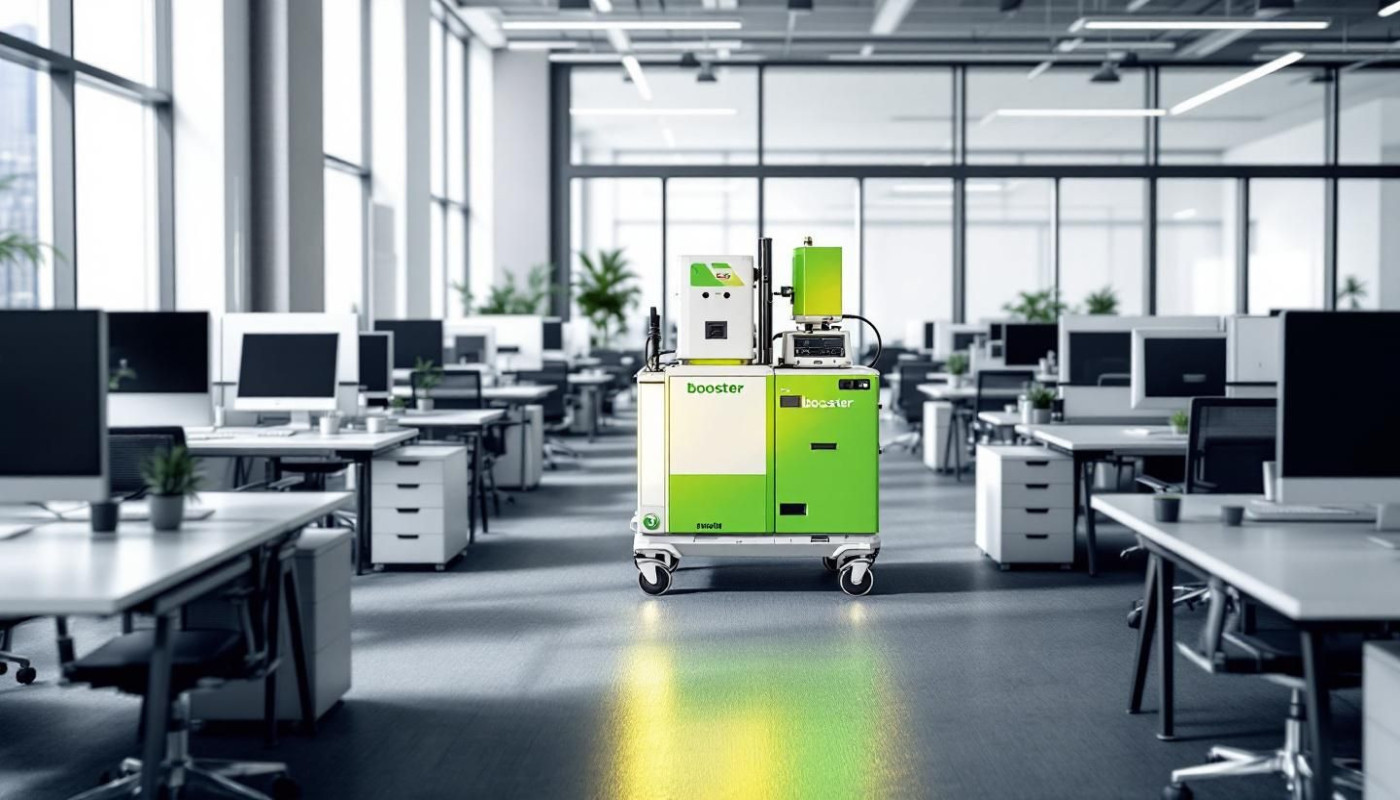Table of contents
In an era where time is as valuable as currency, small businesses are constantly seeking innovative ways to streamline operations and enhance productivity. Artificial Intelligence (AI) has emerged as a transformative force, empowering even the minimalist of setups to compete within bustling marketplaces. Delve into the world of AI and discover the untapped potential it holds for accelerating small business efficiency. This exploration will unveil the practical applications of AI that could revolutionize your workflow, customer engagement, and decision-making processes.
Understanding AI and Its Impact on Small Business
Artificial Intelligence (AI) has become a transformative force in the business world, offering tools and technologies that can greatly enhance the operations of small businesses. AI for small business encompasses a range of applications that can automate repetitive tasks, thus freeing up valuable time for entrepreneurs to focus on strategic decisions rather than mundane activities. Through the integration of automation, small businesses can elevate their productivity, allowing them to compete with larger enterprises.
The utility of AI extends beyond mere task automation; it includes sophisticated data analysis capabilities. By harnessing machine learning algorithms, AI systems can sift through large volumes of data, identifying patterns and offering actionable insights. These insights enable small business owners to make informed decisions, optimize their operations, and better understand customer behavior and preferences. As a result, the customer experience can be greatly enhanced, as businesses are able to provide personalized services and interactions based on the intelligence gathered through AI.
Moreover, machine learning, a core component of AI technology, can progressively improve over time as it processes more data. This aspect of AI is especially beneficial for small businesses that may lack the extensive resources of larger corporations. With machine learning, these businesses can still achieve a high level of functionality and effectiveness in their AI applications, even with limited initial input. Ultimately, AI for small business is not just about keeping up with technology trends; it's about unlocking a world of possibilities that can lead to sustained growth and success.
Streamlining Operations with AI Tools
AI tools are revolutionizing the landscape of business efficiency, particularly for small enterprises looking to escalate their operation's productivity. For instance, in inventory management, AI-driven systems provide accurate predictions on stock levels, reducing the risk of overstocking or stockouts. By analyzing past purchasing data and trends, these systems employ predictive analytics to forecast future demand with remarkable precision. The integration of such technology not only guarantees time savings by eliminating the need for manual inventory checks but also leads to substantial cost savings through optimized stock management.
In the realm of scheduling, AI software is adept at coordinating appointments and managing employee rosters. With the ability to process vast amounts of data, these tools can identify the most efficient allocation of human resources, aligning staff availability with predicted business needs. This results not only in heightened productivity but also in enhanced employee satisfaction, as schedules are better tailored to individual preferences and availability.
Moreover, AI's impact on supply chain logistics is undeniable. By leveraging machine learning and predictive analytics, these advanced systems can anticipate potential disruptions and provide actionable insights for mitigating risks. This foresight ensures smoother operations and a more resilient supply chain. As a result, businesses experience fewer delays, maintain steady production flow, and ultimately, satisfy customer demands more effectively. In an era where agility and responsiveness are vital, the integration of AI into business processes offers a formidable advantage for small businesses looking to thrive in a competitive market.
Enhancing Customer Engagement Through AI
Artificial intelligence is rapidly transforming the landscape of customer engagement, offering innovative ways for small businesses to connect with their clientele. With the integration of personalized recommendations, businesses can now provide a bespoke shopping experience that caters to the unique preferences of each customer. This precision in tailoring suggestions not only encourages repeat business but also strengthens the customer-business relationship. Moreover, AI chatbots have revolutionized customer service by enabling round-the-clock assistance. These intelligent chatbots, powered by natural language processing, can handle a multitude of inquiries simultaneously, ensuring prompt and efficient service that exceeds customer expectations.
Additionally, sentiment analysis tools, another AI-driven innovation, empower businesses to perform deep dives into customer feedback. By analyzing comments, reviews, and social media interactions, sentiment analysis provides invaluable insights into the emotional tone behind customer opinions. This not only helps in proactively addressing concerns but also assists in celebrating what's working well, paving the way for informed decision-making and enhanced customer satisfaction. Together, these AI tools form a robust framework for small businesses to nurture customer relations, improve service quality, and stay ahead in a competitive marketplace.
Data-Driven Decision Making with AI
The advent of AI analytics has revolutionized the way companies approach data-driven decision making. In the realm of business intelligence, AI serves as an indispensable ally for small businesses looking to distill actionable insights from expansive datasets. Big data analytics, a domain where AI thrives, enables the processing and analysis of voluminous information that is often beyond the scope of human capacity. By deploying AI algorithms, companies can efficiently uncover trends and patterns that remain hidden within complex data structures.
These AI-driven insights are integral to strategic planning, as they provide small businesses with a foresight that is grounded in empirical evidence. By leveraging AI in their decision-making processes, businesses can anticipate market shifts, understand consumer behavior, and identify new opportunities for growth. Furthermore, AI's prowess in data interpretation aids significantly in risk management. It equips businesses with the predictive tools required to foresee potential challenges and address them proactively, mitigating risks before they escalate into full-fledged crises. In this context, a seasoned business analyst, with their expertise in AI, becomes a crucial player, guiding small businesses through the nuances of data interpretation and strategizing to foster informed, intelligent decision making.
Overcoming Challenges in AI Adoption
For small businesses considering AI adoption, the path can be strewn with obstacles such as high costs, intricate systems, and a deficit in skilled personnel versed in AI technology. To navigate these hurdles, a tactical approach is advisable. One strategic move is commencing with modest, less complex projects that do not require substantial AI investment upfront. This allows for a better understanding of AI's potential impact without a significant financial burden. Scaling AI incrementally ensures that the business does not overextend its resources and facilitates a smoother integration process.
Developing a partnership with AI vendors offering tailored solutions for smaller enterprises can also alleviate the heavy lifting involved with cutting-edge technology. Additionally, focusing on the scalability of the AI systems ensures long-term adaptability and growth potential. By investing in training existing personnel or hiring staff with necessary AI competencies, businesses can further mitigate the challenge of employing specialized staff. Acknowledging the challenge is the first step, but with strategic planning and a focus on scale, small businesses can indeed overcome the barriers and harness AI to boost their operational efficiency.
On the same subject











